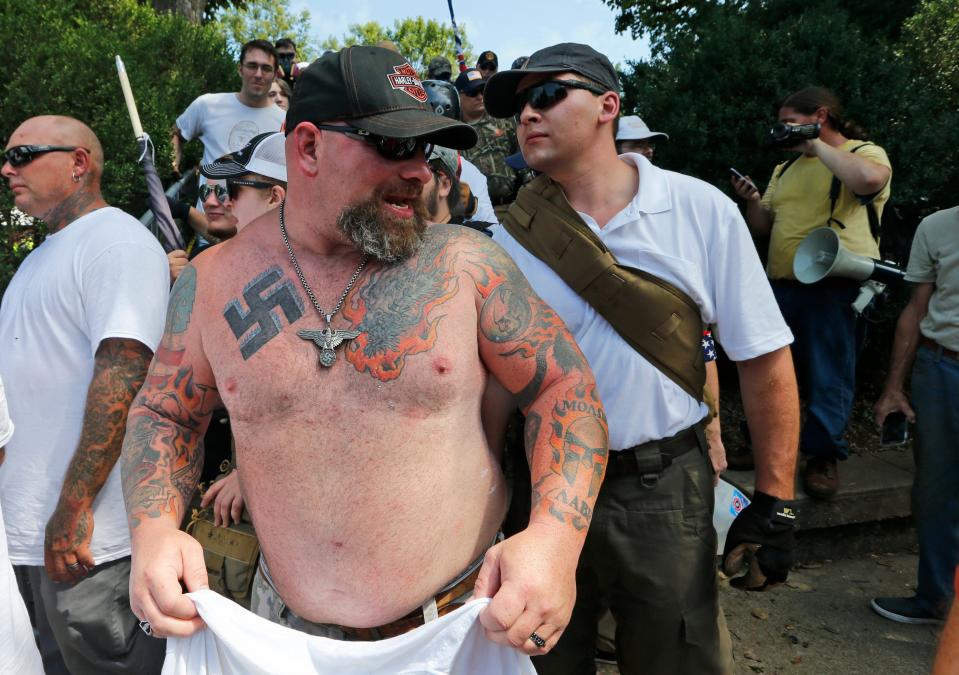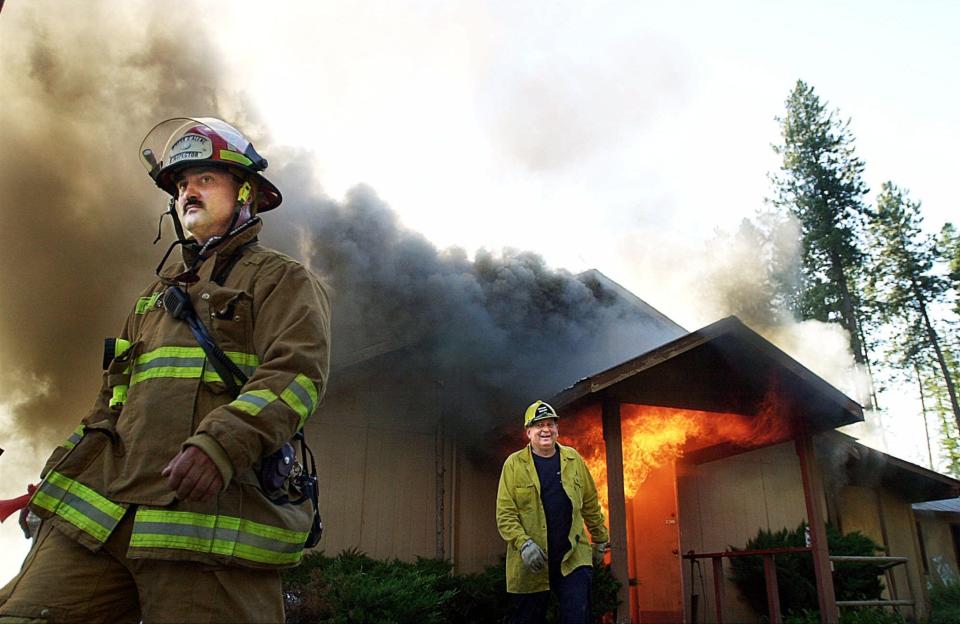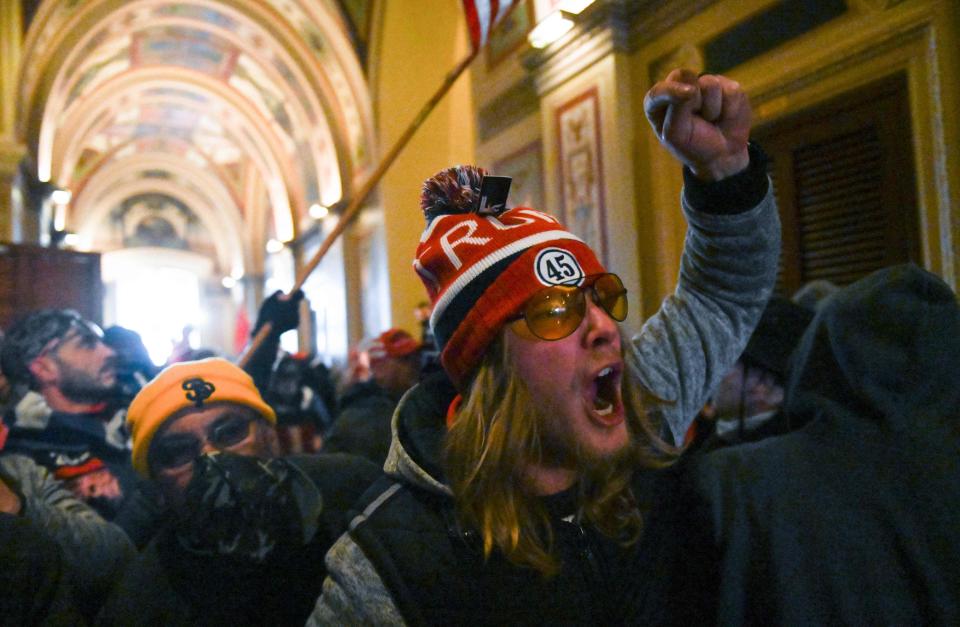Lawsuit over Charlottesville 'Unite the Right' rally has crippled white supremacist groups, leaders
A federal lawsuit against the organizers of the deadly 2017 Unite the Right rally in Charlottesville, Virginia, which has rattled hate groups and white supremacist leaders, goes to trial this month.
The suit already has helped to dismantle some of America's most well-known white supremacist groups, and it has financially crippled one leader of the so-called "alt-right," the white supremacist and nationalist movement that came to prominence under President Donald Trump.
"It's very stressful, and very costly," said Richard Spencer, one of the defendants in the lawsuit and the former de facto leader of the "alt-right," in an interview. "This level of pressure is definitely scary."
Oath Keepers: Hack exposes law enforcement officers who signed up to join anti-government Oath Keepers
White supremacist recruiting: How podcasts have become the backbone for white supremacist recruiting
Video: 'White supremacy is terrorism': Biden condemns terrorism in address
Lawsuits have long been used to dismantle or bankrupt the engines of hate in the U.S., including the Ku Klux Klan, the Aryan Nations and the neo-Nazi website The Daily Stormer.
"We know that civil lawsuits work in holding accountable extremists by going after their finances and their operations," said Amy Spitalnick, executive director of the nonprofit civil rights group Integrity First for America, which is backing the lawsuit. "That has been true for decades."
But even when those groups have been crippled, white supremacists have adapted, going underground and surfacing with new organizations and leaders.

An alleged conspiracy to Unite the Right
The Unite the Right rally, held on Aug. 11 and 12, 2017, was a watershed moment for the white supremacist movement in the United States.
Coming the summer after the election of a president who kickstarted his political career by pushing a racist conspiracy theory, the event put American hatred on full display.
Clean-cut white men marched across the University of Virginia campus carrying tiki torches and chanting, "Jews will not replace us." Neo-Nazis and white supremacists, brandishing shields emblazoned with Nazi symbols, chanted racist and antisemitic slogans as they fought the removal of a Confederate monument.
Fights between white supremacists and counter-protesters broke out. Neo-Nazi James Fields drove his car into a crowd, killing Heather Heyer. Fields was convicted of murder and sentenced to life in prison.

Heather Heyer attack: Neo-Nazi James Fields gets life plus 419 years for murder in Charlottesville
Integrity First's wide-ranging lawsuit alleges that the leaders of the white supremacist movement engaged in a conspiracy to commit racially motivated violence against nonwhite and Jewish people during the Unite The Right rally.
"The violence in Charlottesville was no accident," the lawsuit states. "Defendants spent months carefully coordinating their efforts, on the internet and in person. They exhorted each other: 'If you want to defend the South and Western Civilization from the Jew and his dark-skinned allies, be at Charlottesville on 12 August' and 'Next stop: Charlottesville, VA. Final stop: Auschwitz.'"
The lawsuit seeks compensatory and punitive damages for the plaintiffs, with the amount to be decided by a jury.
The defendants are a "who's who" of the extremist right: Jason Kessler, a key organizer of the event; neo-Nazi podcaster Christopher Cantwell; Nathan Damigo, a white supremacist who founded the group Identity Evropa; Spencer; and a host of other extremist leaders and groups.
Richard Spencer: Suit has been 'crippling'
Despite briefly rising to prominence at the outset of the Trump presidency, the last four years have proven brutal for the "alt-right," a political movement that mixes racism, white nationalism, antisemitism and populism. That's thanks in part to the pressure of the case, filed in October 2017.
Spencer has no illusions about the state of the movement he helped create. "The 'alt-right' is dead," he said in an interview last month.

 Yahoo Autos
Yahoo Autos 







